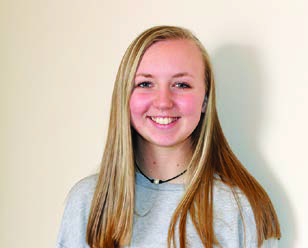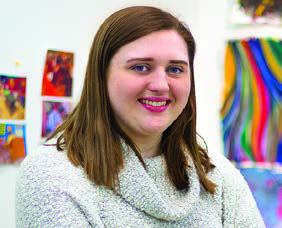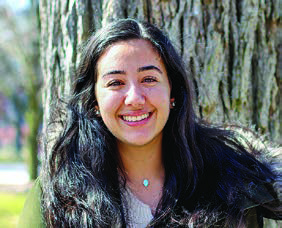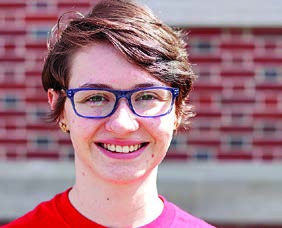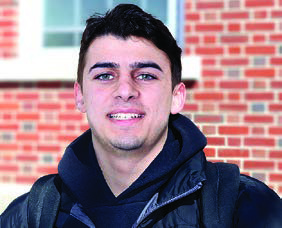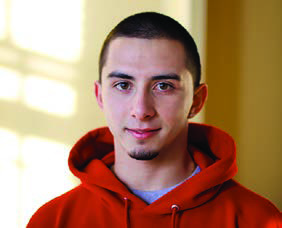The 2021 Learning Communities for Pre-Majors guide is being presented on the web instead of mail distribution. It is also available as a PDF booklet.
Explore majors and succeed in your first year
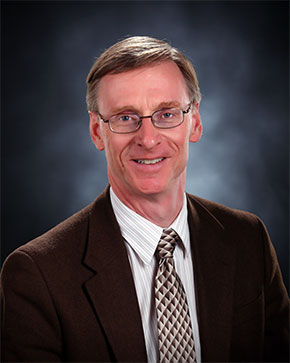
Every year, SUNY Cortland welcomes new students in a variety of majors, the largest of these being pre-major. As a pre-major, you haven’t yet chosen a particular area of study. At SUNY Cortland, we offer a variety of learning community experiences that cover a range of interests and are well suited for those who have yet to commit to studying a particular subject.
During your first semester, you’ll explore career and academic options such as science, human behavior and society, political systems, world cultures, recreation, the environment, and peace and conflict studies.
In a learning community, you won’t be just another student in an introductory class. You’ll be enrolled in courses that address common themes with about 22 other students who have similar interests. You, your classmates and your professors will get to know one another as you explore new ideas and discover the world around you. You’ll also learn more about yourself.
Research has shown that students who participate in learning communities develop greater intellectual maturity and take more responsibility for their education. I am excited about the opportunities you will have as part of a learning community at SUNY Cortland and I am confident that the experience will be rewarding.
R. Bruce Mattingly, Dean of Arts and Sciences
Rank your learning community preferences:
Read through all of the program descriptions on this page and rank your learning community choices in order of preference, 1-4. You will provide these preferences when you sign up for an online Orientation session. Placement is on a first-come, first-served basis. This is where you will also provide information about college credit earned while in high school through AP, IB or dual enrollment with a college.
During your virtual advising session, you will meet with a faculty advisor and set your first-semester schedule. It will include your learning community placement, other General Education courses and COR 101: The Cortland Experience, a course designed to help you transition to Cortland’s academic community. Other courses will be added to complete a full semester schedule. Read through all eight learning community sections below.
All Pre-Major students have a professional advisor in Advisement and Transition who provides ongoing support and resources to assist you in identifying your academic interests and career aspirations so you are able to choose a major that aligns with your goals. Your academic advisor will be assigned prior to the start of the semester.
Building Community Through Recreation
Lauren Jarosinski
“The learning community classes/experience helped me determine a major. I am now a recreation management major. I didn’t know this major existed and it’s exactly what I want to do.”
Recreation is active engagement in freely chosen, meaningful activity to promote well-being. By connecting individuals with common interests, recreation builds relationships and is the key to creating a healthy community. Students who build connections with others and to campus are more successful in and out of the classroom.
You will have the opportunity to create your own sense of community by not only sharing two courses, but also by participating in an overnight weekend field trip to SUNY Cortland’s William H. Parks Family Center for Environmental and Outdoor Education Center at Raquette Lake. This year the field trip is (to be determined) Friday, Sept. 17, through Sunday, Sept. 19.
In addition to COR 101, you will take REC 271: Foundations of Recreation, a liberal arts and sciences course, which introduces you to the concepts of recreation, play and leisure in your life as well as the profession of recreation and leisure services.
This learning community will be of particular interest if you are thinking of majoring in recreation, outdoor recreation, therapeutic recreation or recreation management. Learn how you can make a difference by building community and enhancing quality of life through recreation.
COR 101: The Cortland Experience (1 credit hour)
REC 271: Foundations of Recreation (3 credit hours)
History, theory, philosophy of play and recreation; implications for individuals, groups in changing society.
Instructor
N. Qwynne Lackey, Assistant Professor, Recreation, Parks and Leisure Studies
Earth and Environment
Jillian McEvoy
“I like the learning community. I was happy to be put in Earth and Environment because I found out how much I enjoyed geology; otherwise I never would have known.”
This learning community provides a unique opportunity for you to explore the natural world by taking classes and laboratories as a group. Classes are small and students and faculty work together. You should consider this program if you are interested in the earth sciences and environment.
COR 101: The Cortland Experience (1 credit hour)
ENS 100: Introduction to Environmental Science (3 credit hours)
Application of scientific methods to the study of the natural world and how it is influenced by people. Emphasis on understanding of local, regional and global environmental issues from an interdisciplinary perspective.
GLY 261: Physical Geology (4 credit hours)
Principles of physical geology. Earth materials, intracrustal forces and products, agents of gradation and their physiographic expression. Laboratory study includes minerals, rocks, topographic and geologic maps, simple geologic structures. Three lectures, one three-hour laboratory, field trips.
Instructors
- Jessica Bilek, Senior Admissions Advisor, Admissions
- David Barclay, Professor, Geology
- Gayle Gleason, Associate Professor and Chair, Geology
- Li Jin, Professor, Geology
Happiness and Society
Tiffany Ennab
“The best aspects of my learning community classes are the professors, as well as the classmates. All of my learning community professors are very engaging and helpful, and I’ve made multiple friendships with my classmates!”
This learning community is an opportunity for you to study philosophical and ethical issues of significance to contemporary society. It will help you think, read and write critically — skills beneficial for all future courses in all disciplines. This community is also a great introduction to philosophy and the major questions of human life. Courses have a high content of discussion and student interaction.
COR 101: The Cortland Experience (1 credit hour)
PHI 100: Introduction to Philosophy (3 credit hours)
Introduction to subject matter and methods of philosophy. Readings include classical and contemporary writers on a range of philosophical topics including social and political philosophy, philosophy of religion, questions of metaphysics and epistemology, ethics and basic characteristics of rational inquiry.
PHI 201: Ancient Social Philosophy (3 credit hours)
Explores ancient social philosophy as part of the social, political and historical development of Western civilization from its origins in Greece, emphasizing Plato and Aristotle to the Epicureans and Roman Stoics and comparing them to developments in other parts of the world. Analyzes the Greeks’ understanding of the human person in society and how that has influenced our thinking today. Covers such topics as democracy, justice, friendship and the family.
Instructors
- Nikolay Karkov, Associate Professor, Philosophy
Mecke Nagel, Professor, Philosophy and Africana Studies
L. Sebastian Purcell, Associate Professor, Philosophy; Co-coordinator, Latino and Latin-American Studies; Director; Honors Program
Molecular World
Kaitlyn Janczuk
“Molecular World gave me the opportunity to meet other students who were interested in chemistry and work with faculty who were eager to help me find my place at Cortland.”
In Molecular World, you will explore topics that include nanotechnology, medicine and how green technologies will benefit everyone on the planet. This learning community provides the unique opportunity for you to work in small groups of students and faculty within the classroom and laboratory environment.
Classes in this learning community satisfy General Education requirements. If you are interested in biochemistry, chemistry or adolescence education in chemistry, you should join this learning community.
COR 101: The Cortland Experience (1 credit hour)
CHE 227: General Chemistry I Lecture (3 credit hours)
Atomic theory, structure, chemical bonding. Application of thermodynamic, structural and kinetic considerations to inorganic systems. Electrochemistry, quantitative analysis, other current topics.
CHE 277: General Chemistry I Laboratory (1 credit hour)
Students will learn basic laboratory techniques in the general chemistry area and be required to keep a professional lab notebook. Concepts from General Chemistry I Lecture will be emphasized and reinforced.
CHE 224: Problem-Solving in General Chemistry I (1 credit hour)
Methods of solving problems in general chemistry: stoichiometry, atomic and molecular structure, bonding.
Instructors
- Gail Buckenmeyer, Lecturer II, Chemistry
- Gregory Phelan, Professor and Chair, Chemistry
- Andrew Roering, Assistant Professor, Chemistry
Peace and Conflict
Matt Reiter
“The learning community was great to meet new people and COR 101 was helpful to learn about campus. The instructors are very passionate.”
The human story is one of peace and conflict. This learning community will help you think through the complexities of peace-building, peaceful communication and the role that institutions play in the development and maintenance of peace in our society. If you select this learning community, you will learn how peaceful practices can benefit you both personally and professionally.
COR 101: The Cortland Experience (1 credit hour)
FSA 250: Foundations of Peace Education (3 credit hours)
Incorporates issues of social justice, inequality and perspectives on peace to explore the role of educational practices in the perpetuation and mitigation of threats of violence. Provides a framework for understanding the need for, obstacles to and implications of peaceful practices. Satisfies the GE 11 category.
PHI 160: Introduction to Peace and Conflict Studies (3 credit hours)
Introductory exploration of issues related to origins of human conflict and the peaceful resolution thereof.
Instructors
- Mecke Nagel, Professor, Philosophy and Africana Studies
- Joseph Rayle, Associate Professor, Foundations and Social Advocacy
Play Across Cultures
Zach Pruden
“The learning community pointed me in the perfect direction and gave me a final option for a major.”
Every day, all over the world, children play games. They jump ropes and roll marbles — even animal knuckles. They draw games on sidewalks or in the sand; they throw balls and chase each other. They play for healthy physical, social and cognitive development; they play for fun. And when they play, culture is learned and perpetuated. This learning community is for students interested in play, children and contrasting cultures.
In addition to COR 101, you will take REC 150: Play Across Cultures where you will “travel” to different countries so you can play the games, simulate the celebrations and perhaps even taste the foods that young people around the world are enjoying.COR 101: The Cortland Experience (1 credit hour)
REC 150: Play Across Cultures (3 credit hours)
Study of the similarities and differences in young people’s play and celebrations through an examination of world cultures.
Instructors
- N. Qwynne Lackey, AssistantProfessor, Recreation, Parks and Leisure Studies
- Rick Powell, Associate Librarian, Library
Social Issues in Sport
Mike Mirabile
“This is a good learning community if you are interested in kinesiology and sociology. You discover interesting concepts within sport and social aspects of society and it allows you to meet and communicate with peers in your class.”
This learning community connects EXS 290: Social Problems and Issues in Sport and Exercise with a dedicated COR 101 section. You will examine social issues through the context of sport and exercise. EXS 290 fulfills the Prejudice and Discrimination General Education requirement.
COR 101: The Cortland Experience (1 credit hour)
EXS 290: Social Problems and Issues in Sport and Exercise (3 credit hours)
Examination of social problems and issues that impact a variety of physical activities. Consideration of how values, prejudice, discrimination and stereotypes affect sport and exercise in ways similar to society at large.
Instructors
- Cheryl Smith, Academic Advisor and Coordinator of Student Outreach and Non-Traditional Student Support, Advisement and Transition
- Yomee Lee, Professor, Kinesiology
World First
“The learning community has allowed me to not only have met amazing people, but also to have the opportunity to learn more about the world.”
Maria Klara Ventura
World First brings together students and faculty who are concerned about global issues such as racism and multiculturalism, human rights, international violence and global economic structures, including inequality and poverty. You will explore past causes of — and future solutions to — the issues facing our world. This learning community will be a good fit if you have an interest in international issues, travel, world cultures and ethnic groups or working in international settings.
COR 101: The Cortland Experience (1 credit hour)
IST 100: Culture through Film (3 credit hours)
Introduction to film as an art form and to the basic narrative and stylistic aspects of film; study of film as a medium of cultural representation and expression; exploration of current and historical global themes and issues through screening, study and discussion of course films.
HIS 101: The World Since 1500 (3 credit hours)
Explores expanding connections between peoples, cultures and political communities in the world from 16th century to present. Focuses on rise and development of new economic systems, political institutions, cultures and ideologies and interactions of people across geographic and national boundaries. Seeksto understand globalization and tensions between local and global events.
ANT 102: Introduction to Cultural Anthropology (3 credit hours)
Subdisciplines, conceptual frameworks dealing with origins, development, diversity of human cultures. Note: We strongly urge that students enroll in a foreign language course to round out their first-semester course load.
Instructors
- Alexandru Balas, Associate Professor and Coordinator, International Studies Program; Director, Clark Center for Global Engagement
- Girish Bhat, Professor, History
- Patricia Martinez, Lecturer IV (Spanish), Modern Languages
- Sharon Steadman, Professor, Sociology/Anthropology Scott Moranda, Professor, History
World Politics
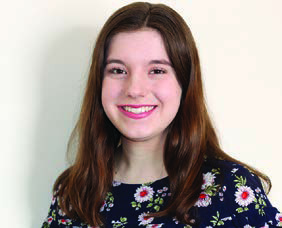
Callie Humphrey
“My learning community is an amazing group of passionate students and dedicated professors who have truly helped me to enjoy my first year at Cortland.”
In the World Politics learning community, you will understand the distinctive features of the history, institutions, economy, society and culture of non-Western civilization. We will discuss the cultural differences in world views, traditions, cultural institutions, values, social systems, languages and means of communication. We will answer questions such as: Why do wars occur? Why are trade barriers so common? Why are some countries rich and others poor? Why do countries obey international law? And why is protecting the environment so difficult?
If you are interested in a career in law, politics, government or public affairs, or if you simply want to become a more informed and effective citizen, this learning community is for you.
COR 101: The Cortland Experience (1 credit hour)
POL 101: Introduction: World Politics (3 credit hours)
Study political systems of the world by comparing and contrasting them with the United States and other countries. Focus includes ideologies, developed and developing nations, and contemporary problems affecting interactions of these systems. This course meets the General Education 3 and 6 categories.
Instructors
- David Runge, Academic Advisor and Coordinator of COR 101, Advisement and Transition
- Brian Williams, Assistant Professor, Political Science
